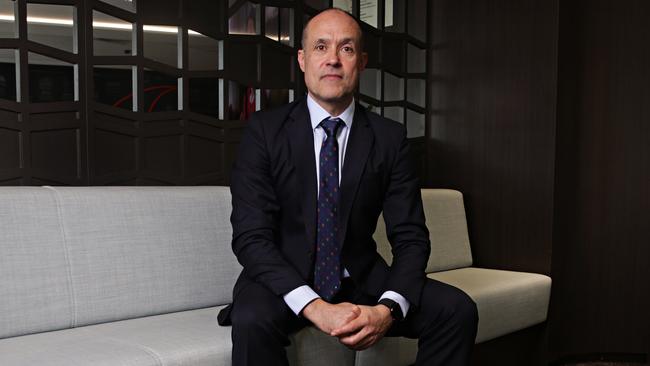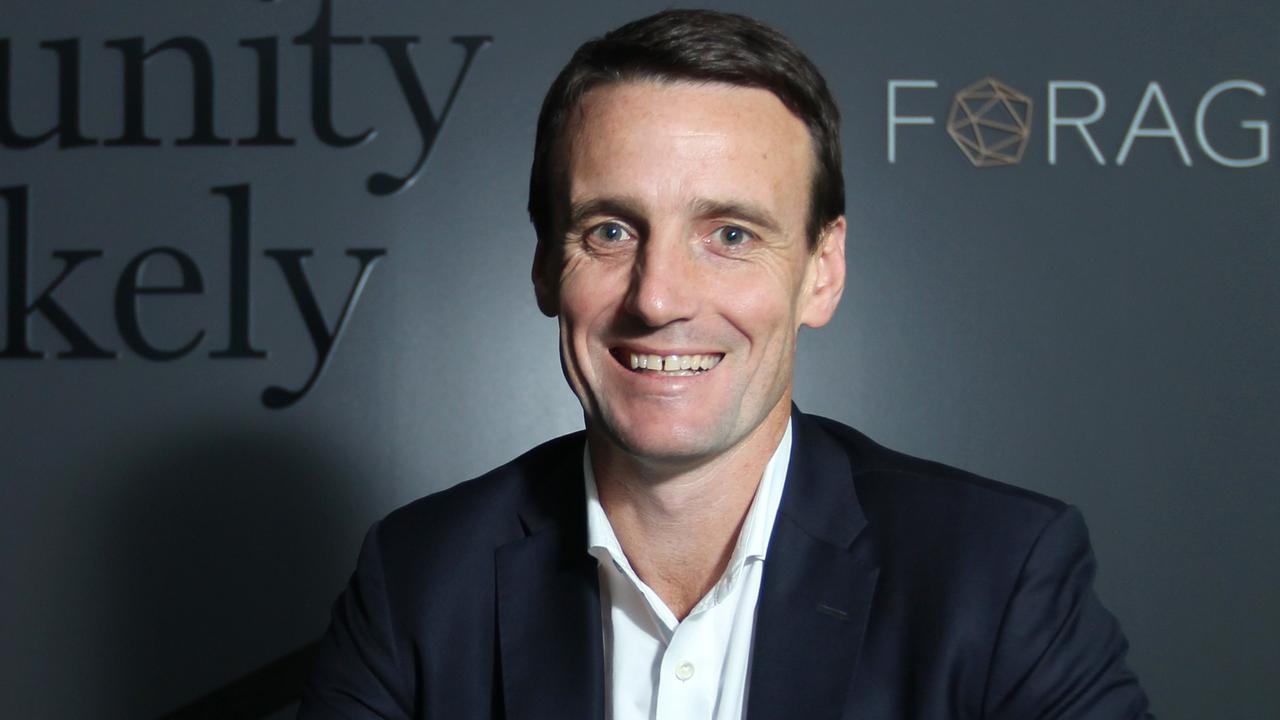TPG halts $6.3bn talks with Vocus, citing ‘complexity’ but is still open to a deal
Carving up TPG’s broadband assets would have been akin to unscrambling an egg, but the telco is still open to a deal. Shares slide nearly 12 per cent.

Australia’s third-biggest telco TPG has halted a $6.3bn sale and leaseback of its non-fibre mobile assets with Macquarie-backed rival Vocus — but says it's still open to a deal.
TPG shares dived 11.7 per cent to $4.81 on Monday - giving it a market value of $10.13bn - against a flat broader sharemarket.
Vocus made an unsolicited bid for TPG’s “mini NBN” fixed infrastructure assets — including Vision Network, which services about 400,000 customers. But once the pair engaged in talks, the deal increased dramatically in scale to include TPG’s broadband assets, which would have effectively doubled Vocus’ market share in the business and government space, rivalling beleaguered Optus.
TPG, led by Inaki Berroeta, was open to the deal happen, given the $6.3bn price tag, as was Macquarie with Vocus the potential to emerge with a 20 per cent share of the broadband business and government market. But the proposal began to collapse under the weight of its “complexity”.
Carving off different parts of TPG’s network would take years and be akin to unscrambling an egg. It would have also locked it into long-term supply contracts with Vocus, hindering its ability to control its own destiny. As the complexity grew, so commercial rationale began to fall, despite the multi-billion dollar price tag.
“The proposed transaction involved considerable complexity and, ultimately, the parties have been unable to reach alignment on the operating model and commercial terms for TPG to have sufficient confidence that a successful transaction can be agreed and executed,” TPG said in a statement to the ASX.

But it said it was still open to a deal, and had received “ongoing strong interest from potential strategic and financial investors in its fixed infrastructure assets”. But any new proposal is likely to be reduced in its scale.
“TPG remains committed to exploring options to deliver value for shareholders. TPG will continue to assess value-optimising alternatives and continues to work with Bank of America on our strategic review,” TPG said.
Macquarie is also understood to be eager to make some sort of deal happen — even its downsized from what Vocus proposed initially — given it has invested a lot resources into a potential acquisition.
But details of any new deal are unlikely to emerge until the new year.
TPG’s enterprise, government and wholesale (EGW) assets and associated fixed infrastructure assets contributed about 21 per cent of its total revenue for the first half of 2023, according to its most recent financials. It has about a 10 per cent share of the EGW market, the same as Vocus, with Optus having 20 per cent and Telstra controlling the rest.
In August, analysts warned TPG investors in August against gaining “too much exuberance” about the offer from the Macquarie-backed entity.
“In fact, we caution investors against too much exuberance on the offer, given the current economic and credit market volatility, despite what the buyout equity market may suggest,” analysts for Ord Minnett said in a research note.
“After all, Vocus still needs to get debt financing, and due diligence is always a fertile ground to begin the price haggling process.”
On Monday morning, Jarden analysts expected any new offers to emerge would be different to what was included in the Vocus deal.
“We note that any potential subsequent offers may not be for the same assets that Vocus proposed to purchase. Industry feedback suggests there is great difficulty and complexity in structurally and functionally separating telecommunications infrastructure assets ⁄ businesses from retail for integrated operators such at TPG,” Jarden said in a note to investors.
“It appears to us from TPG’s comments that this has been a key hurdle with Vocus’ offer. It therefore may have potential to also be a key hurdle for any other potential offer for TPG’s broader EG&W business.
“We also caution that we see strategic benefits in owning fibre infrastructure which would be removed by any potential sale, and that TPG would require IRUs (indefeasible right of use) to access that infrastructure in order to maintain “ownership economics” as part of any transaction.”
TPG last year sold its mobile towers and rooftop infrastructure to Canadian pension fund OMERS in a deal worth $950m, a move chief executive Inaki Berroeta said would help the telco repay its considerable bank debts, which sat at $3.6bn in December.
TPG was the last of Australia’s ‘‘big three’’ telcos to offload its towers arm. Optus sold 70 per cent of its towers business in October 2021 and Telstra that same year netted $2.8bn for the sale of 49 per cent of its telecommunications tower portfolio to Morrison & Co and the Future Fund.
Amid what’s been a flurry of deal-making for the local telco sector, TPG was also forced to abandon a $1.8bn landmark network sharing deal with Telstra after the Australian Competition Tribunal knocked back an appeal.
Vocus is led by chief executive Ellie Sweeney, who in February flagged plans to add to the company’s significant fibre holdings.
Founded by entrepreneur James Spenceley in 2008, Vocus operates Australia’s second-largest intercapital fibre network. It became the nation’s fourth-largest telco following a merger with M2 Group in 2016. Aside from its significant fibre footprint, Vocus operates a number of consumer brands including Dodo, iPrimus and Commander.




To join the conversation, please log in. Don't have an account? Register
Join the conversation, you are commenting as Logout